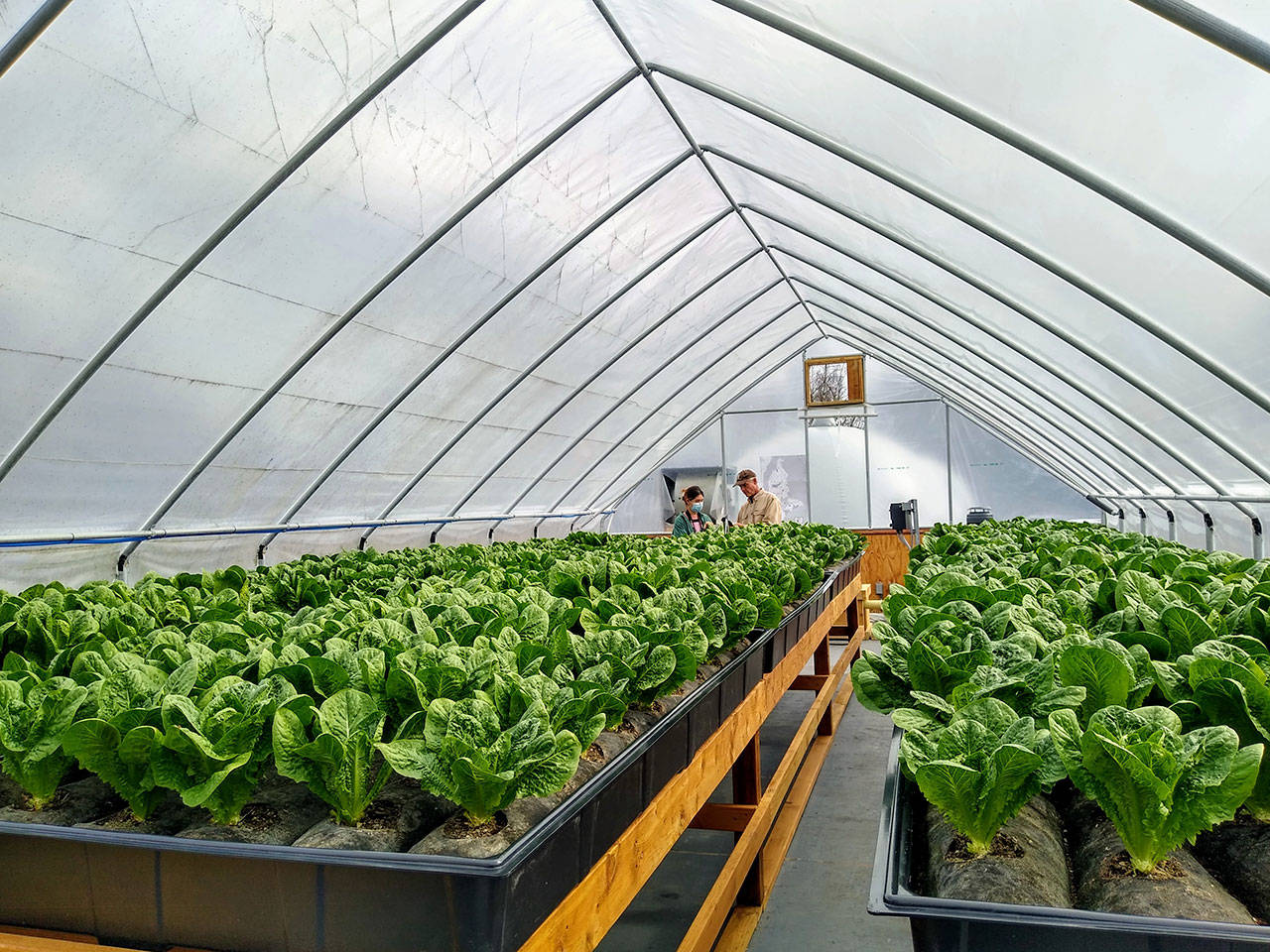Concern for the climate is woven into much of the fabric of everyday island life. Residents of Vashon often organize grassroots activism, lobbying legislators and raising awareness about what individuals can do to effect change.
Many of the leaders of the battle against Glacier Northwest’s expansion plans on Maury Island more than a decade ago went on to work with The Vashon Nature Center, the Vashon-Maury Island Land Trust, and Zero Waste Vashon, among the local organizations that examine how islanders can learn to appreciate nature, protect its resources and wildlife, and live sustainably on the land.
Now, the island is home to the world’s first zero-waste regenerative organic farm, which demonstrates complete circular carbon management, an important step in the effort to offset the possible climate impacts of pollution.
Vashon’s “food to fuel” bioenergy farm hub, debuting last month, has been built in partnership by Alegría Fresh, a designer and builder of solar-powered regenerative organic urban micro-farms, and Impact Bioenergy, a manufacturer of systems that turn organic food waste into usable fuel and fertilizer. By transforming food waste into onsite renewable energy and probiotic, toxin-free organic soil amendments, the farm combines Impact Bioenergy’s anaerobic digester platform with Alegría’s high-performance cultivation framework. On a small footprint, the entire installation can turn food waste into nutrient-rich plant fertilizer and methane. The methane provides an alternative to gasoline that can power Reusable Natural Gas (RNG) vehicles, while the fertilizer can generate enough produce for a full year’s crop production, offering the first line of defense against food supply disturbances such as those currently occurring due to the coronavirus pandemic and expected to continue as the country recovers.
Non-toxic battery storage, indoor farming, a teaching kitchen, café, bakery and EV car charging will all be available at the Vashon farm. The development is ready to mobilize, versatile and cost-effective, repurposing waste and providing high-quality greens, vegetables and herbs within an urban setting where people live and work. The micro-farm can be built in parking lots or in remote areas with limited economies such as Vashon, and it uses existing carbon capture and off-grid energy production technologies to grow produce.
The most notable accomplishment of the project so far, according to Erik Cutter, president and CEO of Alegría Fresh, is that it shows not only what is feasible, but also that sweeping change is both practical and necessary to protect the environment and safeguard the future.
“We can’t keep transporting food 1,500 miles. We’ve got to have local access. We have to build community resilience,” he told The Beachcomber during a media event that showcased rows of heads of lettuce grown in a greenhouse at the farm, adding that the system as a whole represents a dramatic disruption of the ways food can be grown and how to negate the true carbon cost of food production. “Nobody’s really thinking about the 50,000-foot view about how we build systems that stop putting more carbon up. How does every piece of the machine sequester carbon down?”
Cutter noted that the project has the potential to better serve heavily populated urban environments that could be identified as food deserts — areas with restricted access to affordable and nutritious food — while also mitigating climate change impacts that disproportionately affect marginalized communities, creating green jobs and improving food security and community resilience all over the United States, where many families of all backgrounds have been hard hit by the pandemic’s economic effects and have sought relief from food banks.
“This solution, for the food bank, turns them into a farm bank. All of a sudden, food banks now have all this land to produce on-site food. And it basically becomes point-and-pick,” he said, emphasizing the freshness of the produce.
According to the Impact Bioenergy team, repurposing all food waste worldwide for natural fertilizer production and soil regeneration could offset at least 20% of global greenhouse gas production. Guiding their work, as a result, the advantages of food waste digestion in cities, which provides plant fertilizer, seem self-evident. Despite the fact that it has yet to catch on in a big way, Jan Allen, president and CEO, said he is optimistic that things will soon improve thanks to initiatives like the island’s organic farm.
“We are at the point now where there is no reason that this can’t go far and wide,” he said, sharing his hope that the $2 million facility on Vashon would attract stakeholders interested in the future applications for other communities. For the time being, Allen says he can’t think of a better place for the farm than Vashon, which, once fully operational, will be a major driver of the island’s carbon neutrality in the future.
“I would like to see that someday,” he said.
For more information about the bioenergy farm, visit alegriafresh.com.



